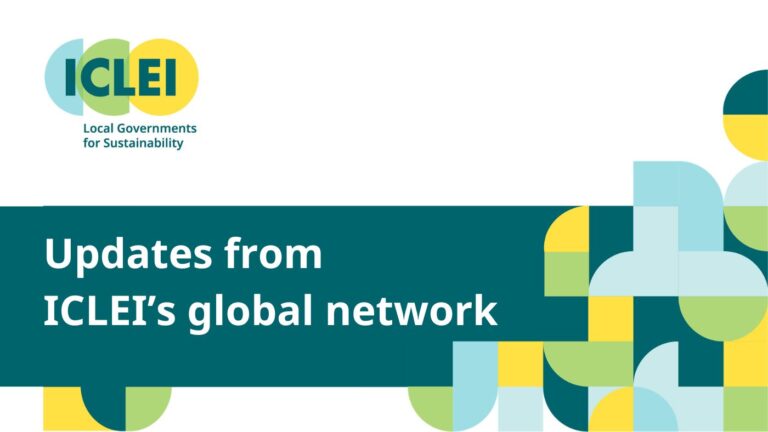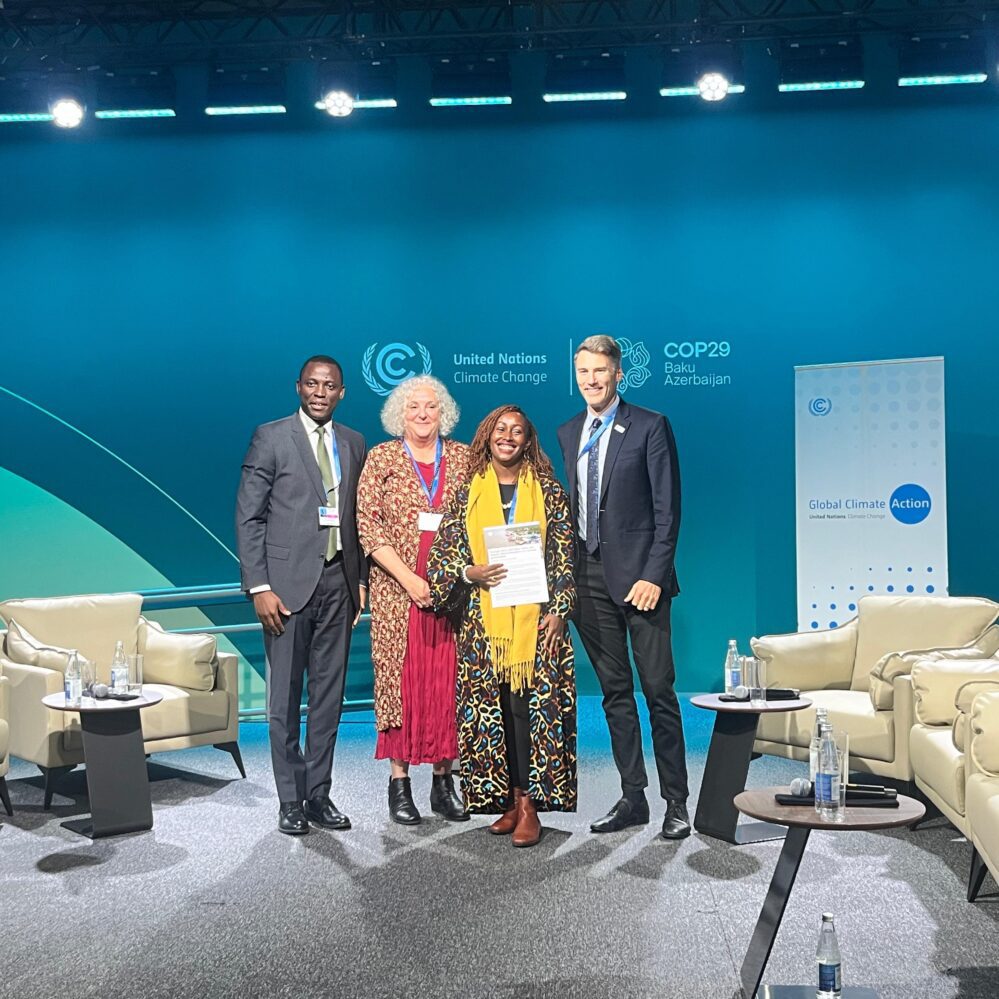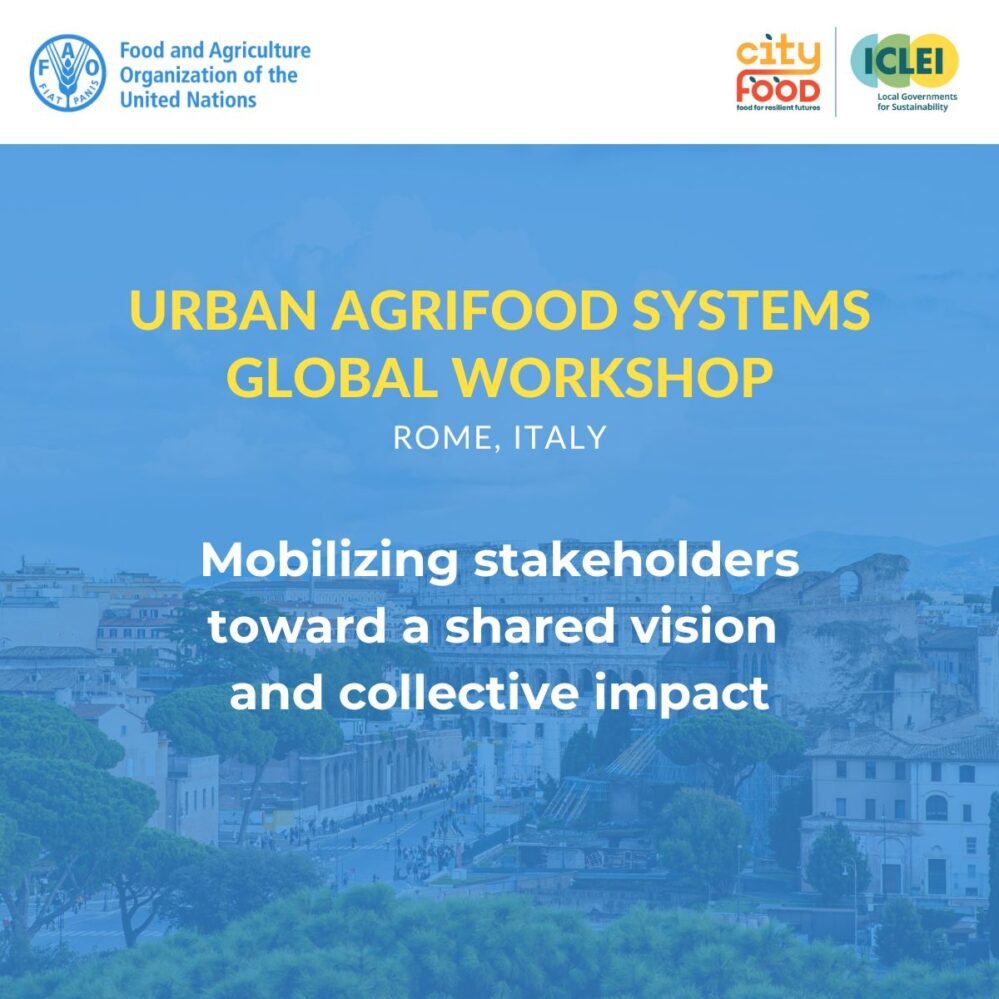Op-ed by Alfredo Coro, Mayor of Del Carmen, Philippines, and Chair, ICLEI Global Executive Committee Biodiversity, Water and One Health Portfolio
On this International Day for Biological Diversity, the theme “Harmony with Nature and Sustainable Development” offers a timely reminder of the essential role cities and subnational governments play in protecting and restoring biodiversity. Healthy urban ecosystems are the bedrock of resilient, liveable, and sustainable communities—supporting clean air and water, food security, and cultural vitality.
This year’s theme highlights the interlinkages between the 2030 Agenda and its Sustainable Development Goals (SDGs), and the Goals and Targets of the Kunming-Montreal Global Biodiversity Framework (KMGBF)—two global agendas that must be pursued hand-in-hand, echoing the spirit of the newly adopted Pact for the Future.
Yet, as my colleague Kobie Brand, Global Director of ICLEI’s Cities Biodiversity Center and Deputy Secretary General of ICLEI, reminds us: “Peace, prosperity, and planetary health will remain out of reach unless we take bold and coordinated action to safeguard biodiversity and reconnect communities with nature. Fortunately, the solutions are at hand—and momentum is building across all levels of government. Through multilevel governance, shared knowledge, and decisive local action, we are shaping cities that thrive in balance with the natural world.”
Today, in recognition of this progress, we will proudly be launching the event report from the 8th Summit for Subnational Governments & Cities—co-hosted by ICLEI, the Secretariat of the Convention on Biological Diversity (SCBD) and Regions4, in partnership with the Government of Colombia and the City of Cali—as an official parallel event to CBD COP 16, held in Cali, Colombia late last year. The report captures the bold commitments and inspiring actions of local and regional leaders who are spearheading transformative change for biodiversity and their communities.
Biodiversity COP 16.2 itself brought noteworthy gains for cities and regions, reaffirming their vital role in implementing the KMGBF. Key outcomes include access to new biodiversity financing sources, recognition in national reporting systems, and inclusion in monitoring frameworks. The adoption of the resource mobilization decision opens avenues for cities to leverage private finance, green bonds and biodiversity credits.
The decision on planning, monitoring, reporting and review provided renewed impetus for cities and regions to report and track progress via CitiesWithNature and RegionsWithNature, recognized in CBD Decision 15/12 as the online platforms where local and subnational governments should report against their commitments to contributing to the KMGBF and National Biodiversity Strategies and Action Plans (NBSAPs), ensuring local efforts are reflected in national and global targets.
The 8th Summit showcased the power of collaboration through its core themes of Partnering, Progress, and Peace. It demonstrated how cities and regions—through self-organised networks—are leading the way in financing, implementing and reporting on biodiversity efforts. The report we launch today illustrates how subnational governments are working closely with national governments and partners to translate global biodiversity commitments into meaningful local action—ensuring that harmony with nature becomes not just a vision, but a lived, daily reality.
Looking ahead, we turn our attention to several key global milestones that will further advance this agenda:
- The 2025 UN Ocean Conference in Nice, France (9-13 June), co-hosted by France and Costa Rica, will be a key moment to accelerate ocean action under the theme “Accelerating Action and Mobilizing All Actors to Conserve and Sustainably Use the Ocean”. I am honoured to join a panel at the Ocean Rise & Resilience summit on 7 June, a special event focused on subnational governments, where I’ll highlight how cities can lead on ocean conservation through coastal resilience and biodiversity restoration.
- Ramsar COP 15 (Convention on Wetlands), taking place in Victoria Falls, Zimbabwe (23-31 July), will focus on wetland conservation, freshwater protection, and the role of local governments. This includes the announcement of new Wetland City Accreditation recipients. ICLEI is working closely with the Ramsar Secretariat to actively engage cities to strengthen their role in public awareness and decision-making on urban wetlands conservation and restoration; and in promoting their contributions in a Resolution on enhancing the Convention’s visibility and synergies with other multilateral environmental agreements, including the three Rio Conventions.
- At World Water Week in Stockholm (24-28 August), ICLEI, IUCN and Veolia will co-host a session titled “Rising Tides, Thriving Cities: Water, Equity, Biodiversity, and Climate Resilience”. This session will position cities as critical catalysts for transformative change, demonstrating how integrated approaches can deliver real impact across multiple sustainability challenges.
- Finally, UNFCCC COP 30 in Belém, Brazil (10-21 November), will mark a pivotal moment in multilateral climate diplomacy. Under the principles of cooperation among peoples and respect for science, Brazil’s leadership aims to unify the climate, biodiversity, desertification and sustainable development agendas. COP30 will serve to protect and strengthen the institutional legacy of the Rio Conventions, bring negotiations closer to the realities of people’s lives, and accelerate the implementation of the Paris Agreement through structural solutions that extend beyond the climate regime advancing reforms in global governance and financial systems.
As we mark International Biodiversity Day and look forward to building further momentum at CBD COP 17 in Yerevan, Armenia in 2026, let us reaffirm our collective commitment to building a nature-positive future—where cities, nature and people flourish together.





